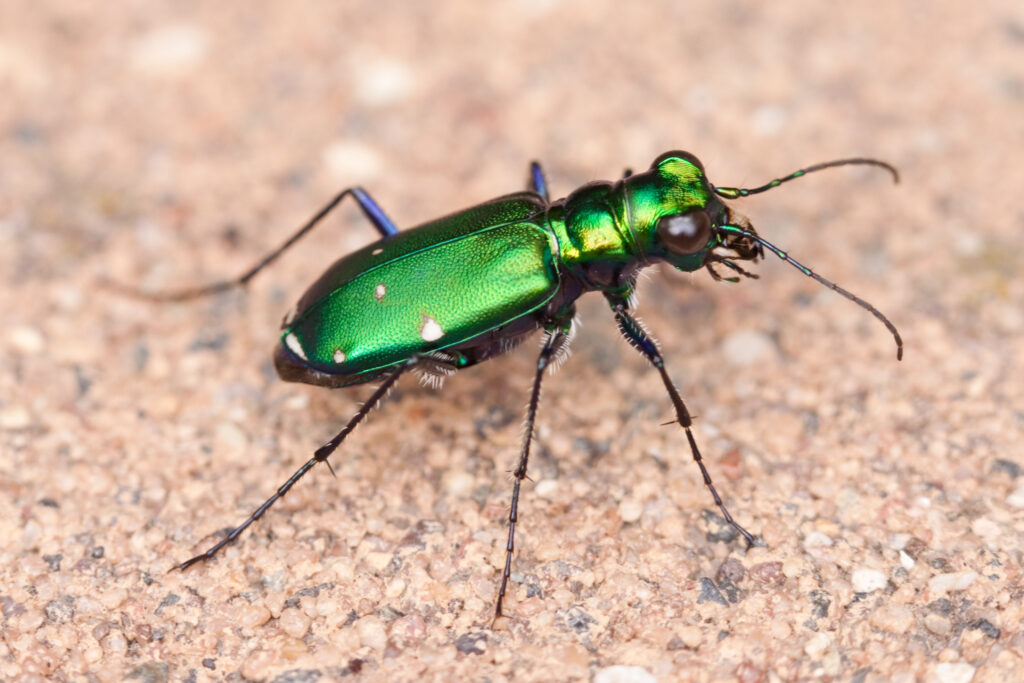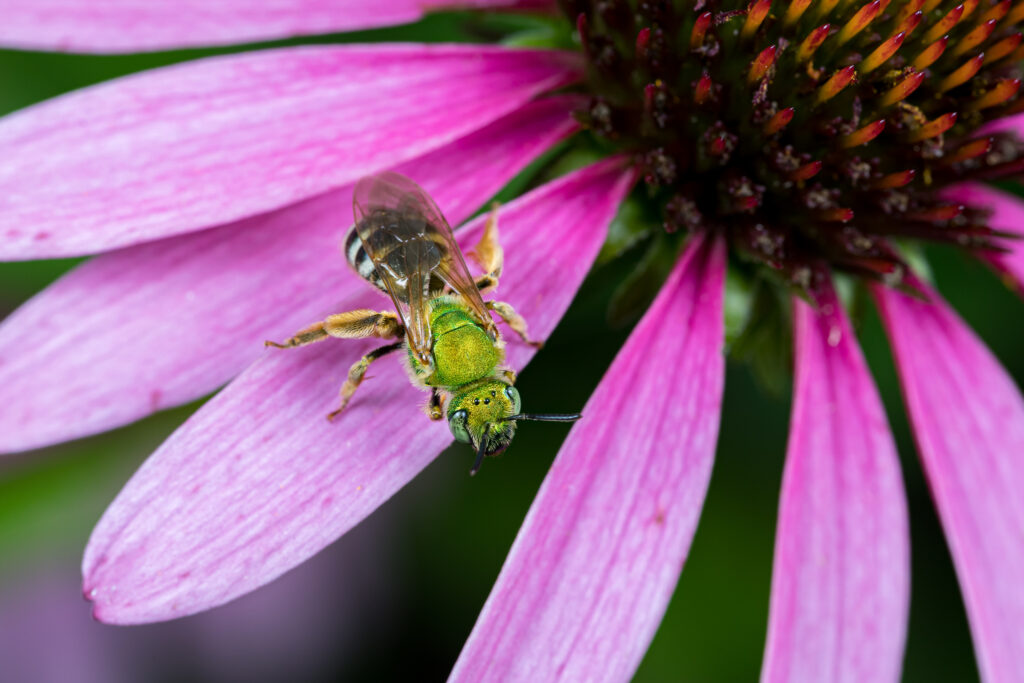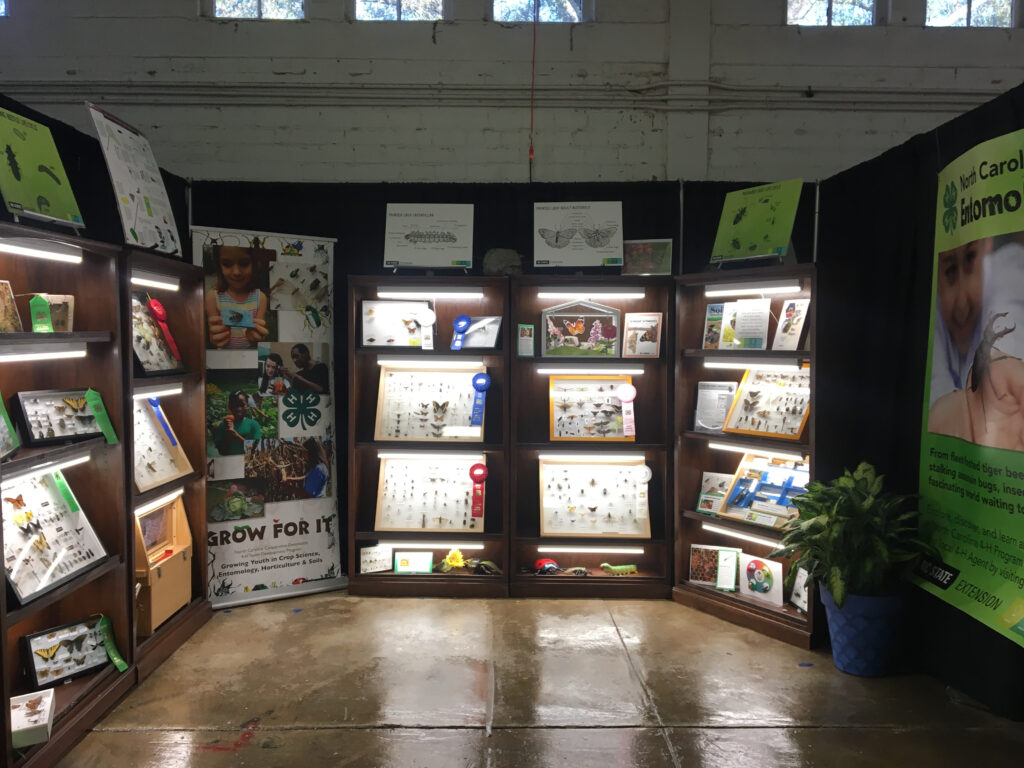Beetles That Click? Bugs That Assassinate? Time to Enter Your Insect Collection to the NC State Fair
go.ncsu.edu/readext?818559
en Español / em Português
El inglés es el idioma de control de esta página. En la medida en que haya algún conflicto entre la traducción al inglés y la traducción, el inglés prevalece.
Al hacer clic en el enlace de traducción se activa un servicio de traducción gratuito para convertir la página al español. Al igual que con cualquier traducción por Internet, la conversión no es sensible al contexto y puede que no traduzca el texto en su significado original. NC State Extension no garantiza la exactitud del texto traducido. Por favor, tenga en cuenta que algunas aplicaciones y/o servicios pueden no funcionar como se espera cuando se traducen.
Português
Inglês é o idioma de controle desta página. Na medida que haja algum conflito entre o texto original em Inglês e a tradução, o Inglês prevalece.
Ao clicar no link de tradução, um serviço gratuito de tradução será ativado para converter a página para o Português. Como em qualquer tradução pela internet, a conversão não é sensivel ao contexto e pode não ocorrer a tradução para o significado orginal. O serviço de Extensão da Carolina do Norte (NC State Extension) não garante a exatidão do texto traduzido. Por favor, observe que algumas funções ou serviços podem não funcionar como esperado após a tradução.
English
English is the controlling language of this page. To the extent there is any conflict between the English text and the translation, English controls.
Clicking on the translation link activates a free translation service to convert the page to Spanish. As with any Internet translation, the conversion is not context-sensitive and may not translate the text to its original meaning. NC State Extension does not guarantee the accuracy of the translated text. Please note that some applications and/or services may not function as expected when translated.
Collapse ▲We are surrounded by a diversity of insects. There are over 1 million named species of insects and it is estimated that there may be as many as 10 million species on earth. Insects live in our yards, parks, forests, fields, mountains, deserts, tundras, and even our homes. Insects are important because of their diversity, ecological role, and influence on agriculture, human health, and natural resources. They cycle nutrients, pollinate plants, disperse seeds, maintain soil structure and fertility, control populations of other organisms, and provide a major food source for other organisms.

This six-spotted tiger beetle can often be found running along forested paths. They are fast and ferocious and catch other insects to eat both as an adult and a larva.
Creating an Insect Collection
An insect collection is one way to be able to observe, understand, appreciate, and steward the entomological wonders around us. The North Carolina 4-H Insect Collection at the NC State Fair provides youth a way to showcase their interest in insects. Youth are encouraged to take the time to explore the outdoors and create a collection of their discoveries.
Through the process of collecting insects, youth begin to learn different species of insects and understand the relationships between insects and their environment, the importance of habitat, and the relationships between species groups such as hosts, predators, and parasites. The more we understand about insects, the more strategies we have for protecting and stewarding these important organisms.

This native sweat bee, an Agapostemon, is a terrific pollinator and nests in the ground.
Insect collections can be enjoyed and studied for many years. You can observe physical features like hairs and wing patterns that can be hard to discern while observing. Specimens in museums provide a historic record of biological diversity and can show changes in distribution and abundance of species over time. You might even find a new species that has never been described before!
Ready to get started? Register for the North Carolina 4-H Insect Collection project at the NC State Fair and continue to grow your collection with these tips and tricks!

The 4-H Entomology Insect Collection at the North Carolina State Fair is a fun way to learn about insects!


